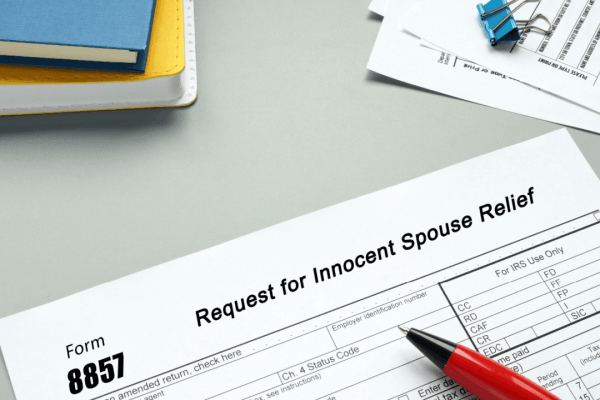
How Do I Settle a Debt Lawsuit | Your Complete Resolution Guide
How Do I Settle a Debt Lawsuit
How do I settle a debt lawsuit is one of the most pressing questions facing consumers today. A debt lawsuit settlement allows you to resolve your case without going to trial by negotiating a payment agreement with the creditor. This process can save you time, money, and the stress of a lengthy court battle.
Legal Strategy Approach: Responding to Your Debt Lawsuit
When you receive a debt lawsuit, time is critical. You typically have 20-30 days to respond, depending on your state’s laws. Your response should include reviewing the complaint carefully, checking if the debt is valid, and determining if the statute of limitations has expired.
First, verify that the debt collector has legal standing to sue you. Many lawsuits fail because the plaintiff cannot prove they own the debt. Request documentation showing the chain of ownership from the original creditor to the current plaintiff. The Consumer Financial Protection Bureau consumerfinance.gov/ provides detailed guidance on debt collector verification requirements.
Gathering Essential Documentation
Collect all records related to the debt, including:
- Original loan agreements
- Payment history
- Previous settlement offers
- Correspondence with collectors
Evaluating Your Legal Position
Examine potential defenses such as statute of limitations violations, improper service, or lack of standing to sue. These defenses can strengthen your position when learning how do I settle a debt lawsuit effectively.
Negotiation Tactics: How Do I Settle a Debt Lawsuit Successfully
The settlement negotiation process requires strategic planning. Start by calculating what you can realistically afford to pay.
Contact the plaintiff’s attorney directly to begin settlement discussions. Express your willingness to resolve the matter quickly and avoid trial costs. Present your offer professionally and in writing.
Payment Structure Options
Negotiate payment terms that work for your budget. Options include lump sum payments, monthly installments, or a combination of both. Creditors may consider various payment structures including lump sum payments and installment plans.
Documentation Requirements: How Do I Settle a Debt Lawsuit Properly
Any settlement agreement must be documented in writing before you make payment. This legal document should specify the settlement amount, payment schedule, and include a dismissal clause requiring the plaintiff to dismiss the lawsuit upon payment completion.
Ensure the agreement states that the settlement represents “payment in full” and releases you from further liability on the debt. Never make payments without a signed settlement agreement.
Essential Settlement Terms
Your agreement should include:
- Exact settlement amount
- Payment due dates
- Case dismissal requirements
- No further collection activity clause
- Credit reporting agreements
Final Resolution: How Do I Settle a Debt Lawsuit and Move Forward
Successfully settling your debt lawsuit requires patience and strategic thinking. Once you reach an agreement, make payments exactly as specified and keep detailed records of all transactions. After final payment, verify that the lawsuit has been dismissed and monitor your credit report for accurate reporting.
Remember that settled debts may have tax implications, as forgiven debt over $600 is often considered taxable income by the IRS. The Internal Revenue Service irs.gov/ provides specific guidance on reporting canceled debt income on your tax return.
Take Action Now: How Do I Settle a Debt Lawsuit Professional Help
Don’t face a debt lawsuit alone. Contact experienced debt settlement professionals today for a free case evaluation. Our team provides debt settlement representation services. Call now to explore your settlement options before time runs out.
Frequently Asked Question
1. Can I settle a debt lawsuit after judgment?
Yes, you can still negotiate settlements even after a judgment, though your leverage may be reduced and the creditor may demand higher amounts.
2. How long do I have to settle a debt lawsuit?
You can negotiate a settlement at any time before trial, but acting quickly after being served gives you the strongest negotiating position.
3. Will settling a debt lawsuit hurt my credit?
A settlement typically has less negative impact on your credit than a judgment, and the account will eventually be removed from your credit report. The Federal Trade Commission ftc.gov/ explains your rights regarding credit reporting and debt collection practices.
4. What percentage should I offer to settle?
Start with 25-40% of the debt amount and be prepared to negotiate up to 60% depending on your circumstances and the creditor’s willingness.
5. Do I need an attorney to settle a debt lawsuit?
While not required, an attorney can help you navigate complex legal issues and potentially negotiate better settlement terms.
Key Takeaways
- Respond to debt lawsuits within the required timeframe to maintain negotiating power
- Verify the creditor’s legal standing and documentation before agreeing to any settlement
- Most debt lawsuits settle for 40-60% of the original amount with proper negotiation
- Always get settlement agreements in writing before making any payments
- Professional legal assistance can significantly improve your settlement outcomes and protect your rights
Free Tax Case Review
If you are struggling with tax debt or have received a letter from the IRS complete the form below.Advertising. This site is a marketing service and does not provide legal or tax advice. Submitting information does not create an attorney-client, tax professional-client, or any other advisory relationship. Results are not guaranteed. A list of participating attorneys, tax firms, and tax providers is available here.
IRS Audit
You received an audit notice from the IRS
Tax Debt Relief
You owe the IRS money and are looking for relief options
Wage Garnishment
The IRS is taking part of your wages to pay off your debt
Tax Lien
The IRS put a legal claim on your property
IRS Property Seizure
The IRS is going to take your property to pay down or pay off your tax debt
Penalty Abatement
You want to request to remove or reduce penalties assessed by IRS
Innocent Spouse Relief
Relief from joint tax debt caused by your spouse or former spouse
Tax Debt FAQ
Common facts, questions and answers about tax debt and tax debt reilef
Tax Debt Lawyer
A tax debt lawyer can help you with your tax debt problems
Recent Posts
- Who Is Eligible for Innocent Spouse Relief and How Does It Work?
- What is an Effective Tax Strategy for Married Couples
- What are the Proofs of Innocent Spouse Relief?
- What Form Do You Use for an Innocent Spouse? | Complete IRS Filing Guide
- What Are the Four Types of Innocent Spouse Relief? | Your Complete Guide



